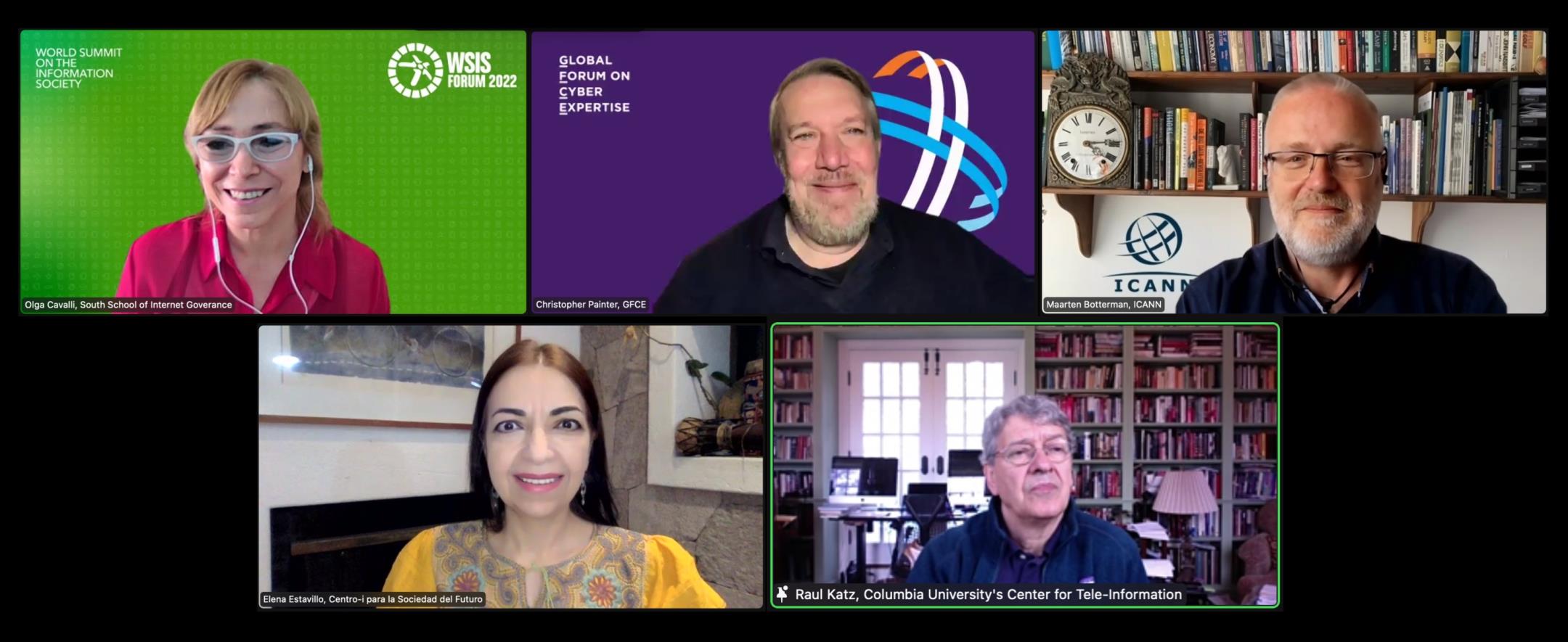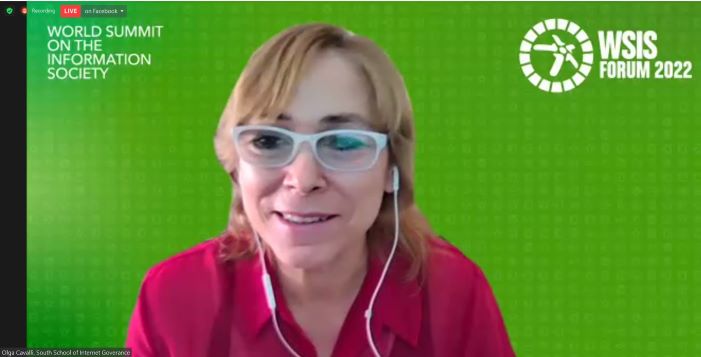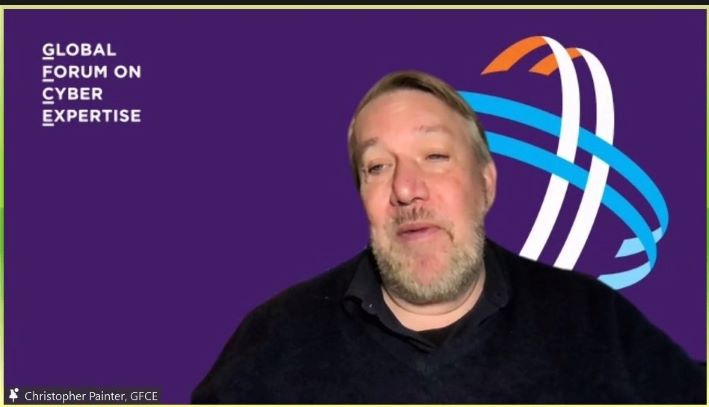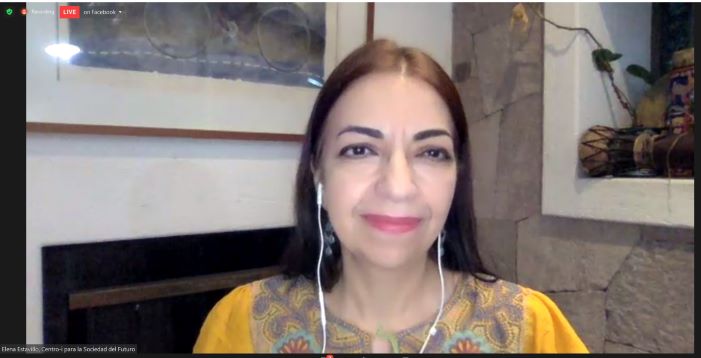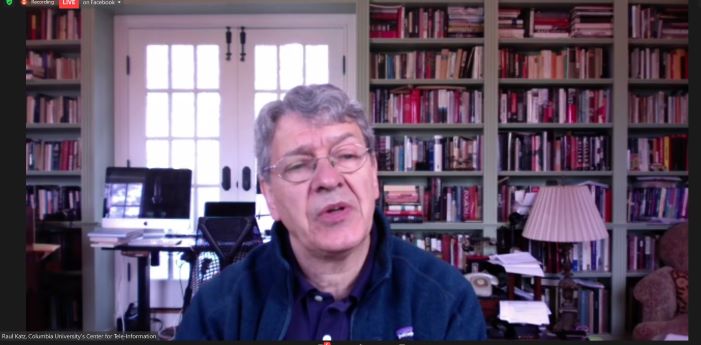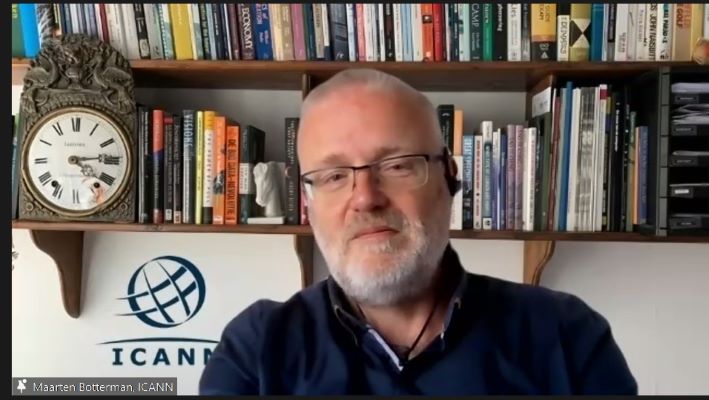E-resiliency and digital transformation in developing economies
South School on Internet Governance , Economic Commission for Latin America and Caribbean of the United Nations, Centro de Capacitación en Alta Tecnología para América Latina y el Caribe
Session 160
Actions to safeguard a society's ability to maintain, change, and recover digital capabilities and withstand digital crises
e-resiliency and digital transformation in developing economies
ICT is an enabler of sustainable development worldwide, and the enabler of many other activities like online banking, e-commerce, smart cities, smart transport and many others.
As per the World Bank: "Digital resilience is a based on strategies, practices, policies and programs that safeguard a society's ability to maintain, change, and recover digital capabilities and withstand digital crises and shocks. Digital resilience is measurable: it is possible to map government, business and civil society readiness to adapt to and recover from short-term shocks and longer-term stresses. It is not limited to cybersecurity even if a capacity to safeguard digital infrastructures is a core attribute. As an “all-of-society” concept, digital resilience emphasizes human, institutional, and digital stability. The three core attributes of digital resilience are cybersecurity, business continuity, and data governance and privacy."
The role of ICT is of special relevance in developing countries. This workshop will try to identify ways to enhance e-resilience, with the purpose of reducing ICT for disaster risk and protection of ICT critical infrastructure. The objective of the workshop is to exchange ideas among the expert panelists in trying to answer the following questions:
- How can developing economies protect the ICT infrastructure and make it more e-resilient?
- What can be done to enhance the existing infrastructure to connect the unconnected and enhance the connectivity of those poorly connected?
- Are there regulations that could be developed or enhanced in order to address the challenge of making the ICT infrastructure more resilient?
- Is it there regional or international financing for making improvements to enhance the e-resilience of the ICT infrastructure
- How can a legal, regulatory and policyspecialits be informed about the importance of e- resilience of ICT infrastructure and services
- Would it be possible to develop a set of good practices for the development and implementation of continuity plans for the ICT infrastructure?

Christopher Painter is a globally recognized leader on cyber policy, cyber diplomacy, cybersecurity and combatting cybercrime. He has been at the vanguard of cyber issues for over 27 years, first as a federal prosecutor handling some of the most high-profile cyber cases in the U.S., then as a senior official at the U.S. Department of Justice, the FBI, the White House National Security Council and, finally, as the world’s first cyber diplomat at the U.S. Department of State.
Among many other things, Christopher served as a commissioner on the Global Commission for the Stability of Cyberspace and had been involved with the Global Forum on Cyber Expertise since its launch in 2015, e.g. Chairing the GFCE Working Group on Cyber Security Policy & Strategy.
He is a frequent speaker on cyber issues, frequently is interviewed and quoted in the media and has testified on numerous occasions to U.S. Congressional committees.
He has received a number of awards and honors including Japan’s Order of the Rising Sun, the RSA Security Conference Public Policy Award and the Attorney General’s Award for Exceptional Service. He received his B.A. from Cornell University and J.D. from Stanford Law School.
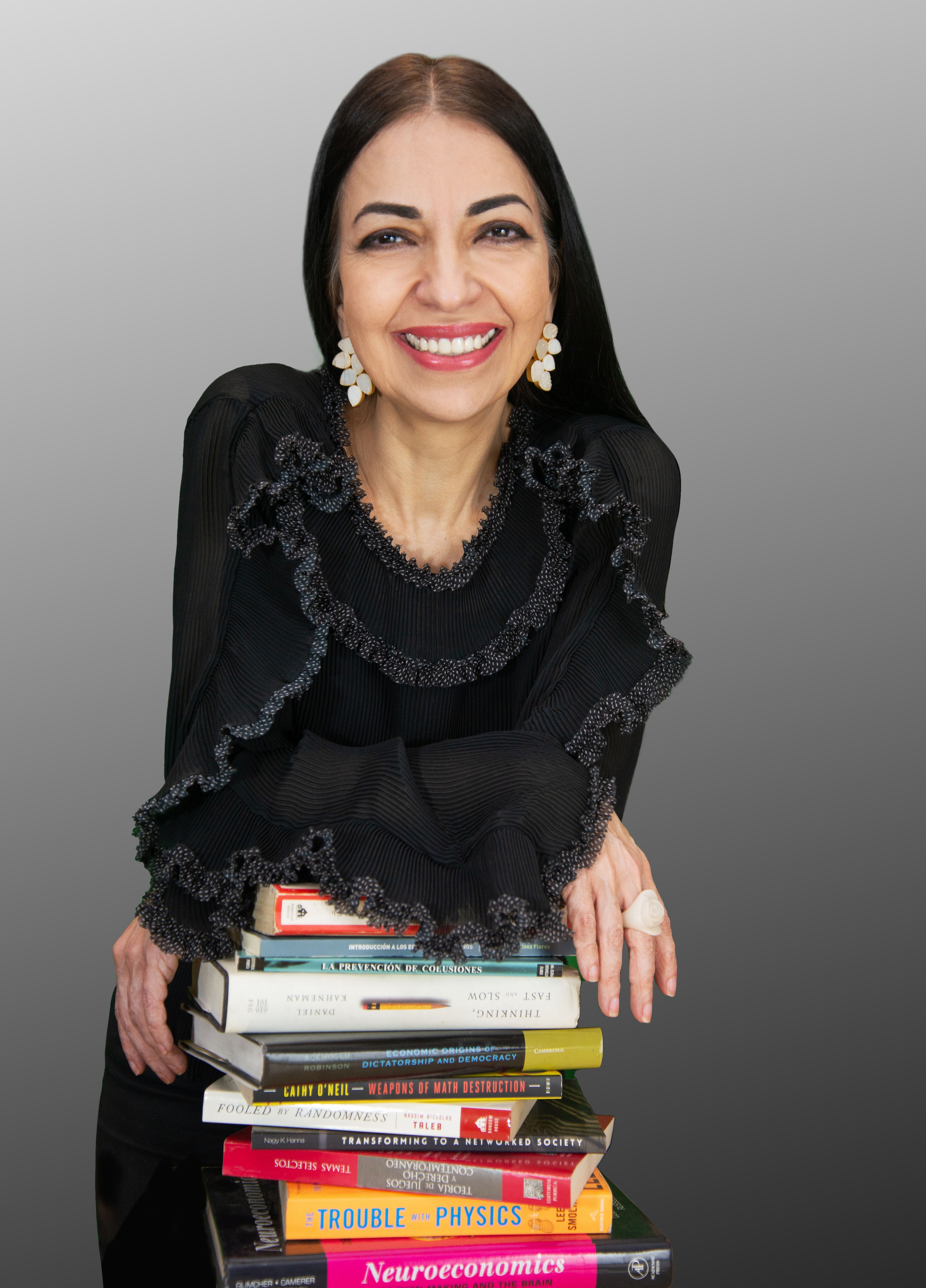.jpg?maxwidth=500)
Elena Estavillo is an expert in the digital ecosystem, competition, regulation, gender and leadership, with special focus on exponential technologies, data and the transformation they generate in our society. Founder and CEO of the think tank Centro-i for the Society of the Future and associate director of the consultancy AEQUUM. Chairwoman and co-founder of Conectadas, a network of women leaders in the digital space that received the WSIS 2020 Champion award. Former commissioner at the Federal Institute of Telecommunications in Mexico. Bachelor in Economics from the Tecnológico de Monterrey, Master in Mathematical Economics and PhD in Economics from the University of Paris. MIT Executive Certificate in Leadership and Management. IVLP Alumni-5G Networks. Lecturer and author. Columnist in Forbes Mexico and La Silla Rota. Independent board member at the School of Social Sciences and Government, Tecnológico de Monterrey. Member of UNESCO's Open Space on Artificial Intelligence for Latin America and the Caribbean, and member of the working group of independent experts C26+ Digital Economy promoted by the US-Mexico Foundation. Served as editorial advisor for business in the newspaper Reforma. Distinctions: WSIS Gender Trendsetter. MujerTec 2022 trajectory award from Tecnológico de Monterrey, 100 Women in Antitrust from Global Competition Review, Most Powerful Women from Forbes Mexico, 102 Women Leaders from El Universal, 20 Women Who Are Changing the Industry from the Radio and TV Chamber in Mexico. Member of the International Women's Forum.

Dr. Raul Katz is a Director of Business Strategy Research at Columbia University’s Center for Tele-Information and has taught courses on Strategies in Digital Industries at the Columbia Business School. He is also a Visiting Professor at the Universidad de San Andres (Argentina). He is currently President of Telecom Advisory Services, a firm specialized in digital strategy, economics, and regulation. Before founding Telecom Advisory Services, he was a Lead Partner at Booz Allen Hamilton, where he was a member of the firm’s Leadership Team and Head of the US and Latin America telecommunication practices.
Dr. Katz has published five books: The Information Society: An International Perspective (Praeger, 1988), Creative Destruction: Business Survival Strategies in the Global Internet Economy (MIT Press, 2001), The Role of ICT in Development (Ariel, 2010), Driving demand of Broadband Networks and Services (Springer, 2014), Digital ecosystems: Innovation and Disruption in Latin America, (Ga, 2017).Dr. Katz received his PhD in Management Science and Political Science and an MS in Communications Technology and Policy from the Massachusetts Institute of Technology. In addition, he holds a Maîtrise in Political Science from the University of Paris-Sorbonne, as well as a Licence and a Maîtrise (with honors) in Communication Sciences from the University of Paris.
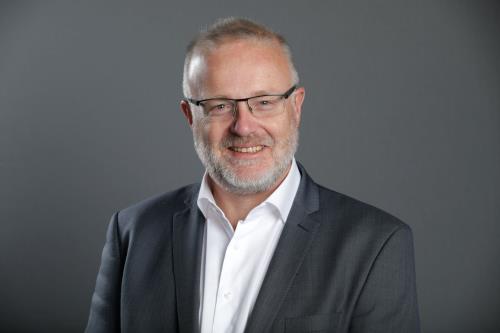
Maarten Botterman is Chairman of the ICANN Board, and independent strategic advisor on Internet Governance and related issues with 25+ year experience in guiding governments and major organizations on the economic/business and societal impacts of current and future internet innovations and technologies. He has 10+ year experience as member of international Boards. His passion is making best use of internet related technologies for a sustainable society, both in terms of ecologic, economic and social sustainability. His vision is based on a deep understanding of what it means to live in a global, networked, knowledge-based society, and his passion is doing the right thing from a public interest perspective in a world that is volatile, uncertain, complex and ambiguous, by nature.
Previous positions included Director of the Information Society Policy practice at the RAND Corporation, Scientific Officer at the Information Society Research Programme of the European Commission and Senior Advisor to the Dutch Government, before becoming independent in 2006. Maarten held Board positions including Chairman of the Board of the Public Interest Registry and Chairman of the Supervisory Board of the NLnet Foundation. He was also 3 years CEO of the UK based public private platform Information Assurance Advisory Council and 3 years as Member of the ENISA Permanent Stakeholder Group. For more information on ICANN, see www.icann.org. For more information about Maarten, see www.maartenbotterman.com.

Olga Cavalli is an Internet leader whose work has been fundamental for enhancing a relevant participation of Latin America and the Caribbean in Internet Governance.
She is the co-founder and director of the South School on Internet Governance which has granted thousands of fellowships for attending an intensive training on Internet Governance, organized in different countries of the Americas since 2008. The School is also open to the community through remote participation with video streaming and different languages, hosting thousands of attendees from all over the world. She is also the co-founder of other capacity building activities: Dominios Latinoamerica, ARGENSIG, the Argentina School on Internet Governance and Desafíos de Internet.
She co-edited the book “Internet Governance and Regulations in Latin America” published in commemoration of the 10th anniversary of the South School on Internet Governance. The book is free and available in Spanish for the whole community and soon will be published in Portuguese and English.
Olga is frequently invited as keynote speaker and panelist in international summits and events. For the IGF 2019 in Berlin the German Government invited her to participate in the IGF 2019 Berlin promotional video, which includes personalities like Angela Merkel and Vint Cerf, among others. She is also a frequent contributor writing papers and chapter books in subjects related with her areas of expertise.
Since 2006 Olga is very active in ISOC. Between 2016 - 2021 she was a member of the ISOC Board of Trustees. She is ISOC Argentina Chapter board member, and was the ISOC Argentina Chapter´s president (2015 – 2018). She was also a member of the ISOC Chapter Advisory Council representing Latin America and the Caribbean, among other activities.
Recognized by ISOC as a “Game Changer”, Olga works towards the inclusion of girls and women in ICTs and the Internet, organizing activities jointly with ISOC, ISOC Argentina Chapter, ITU, UNESCO, ICANN, the Argentina National Center of Engineers and the University of Buenos Aires.
As an Internet expert, she was invited by ITU to participate in the Study Group on Internet of Things and Smart Cities (2015-2017). The ITU has recognized her as an innovator in this field.
During 2007- 2014 she was distinguished by the United Nations Secretary General, being chosen to be a part of the Internet Governance Forum's Multistakeholder Advisory Group, MAG.
Olga is very active in ICANN. Presently she is GNSO Council Member, and was GAC vicechair.
Olga is a Teacher at the University of Buenos Aires and she is also involved in the development of community network projects in rural areas of Argentina.
Olga is a member of the IGF Argentina committee. Previously she was a member of the LAC IGF committee, the representative of Argentina in the WSIS (Tunis 2005), a member of the Committee of the Regional Action Plan eLAC - ECLAC for the Information Society in Latin America and the Caribbean (2010 - 2015), coordinator of the REGULATEL IDB Regional Roaming Project (2010-2013), member of the National Commission of Cyber Crime which defined the Cyber Crime Law of Argentina (2008-2009), member of the Commission that created the National Digital Agenda of Argentina (2008-2009) and Board member of the National Engineers Center of Argentina.
Her education includes a PhD in Business Direction, a Master’s degree in Business Administration, a Master’s degree in Telecommunications Regulation, and a degree in Electronic and Electric Engineering.
She is fluent in Spanish, English, Portuguese and German, and can understand French and Italian.
Olga lives in Buenos Aires and is the mother of Juana and Federico.
-
 C2. Information and communication infrastructure
C2. Information and communication infrastructure
-
 C3. Access to information and knowledge
C3. Access to information and knowledge
-
 C4. Capacity building
C4. Capacity building
-
 C6. Enabling environment
C6. Enabling environment
-
 C7. ICT applications: benefits in all aspects of life — E-government
C7. ICT applications: benefits in all aspects of life — E-government
-
 C7. ICT applications: benefits in all aspects of life — E-business
C7. ICT applications: benefits in all aspects of life — E-business
-
 C7. ICT applications: benefits in all aspects of life — E-learning
C7. ICT applications: benefits in all aspects of life — E-learning
-
 C7. ICT applications: benefits in all aspects of life — E-health
C7. ICT applications: benefits in all aspects of life — E-health
-
 C10. Ethical dimensions of the Information Society
C10. Ethical dimensions of the Information Society
The session directly links to WSIS Action Lines
C2,
C3,
C4,
C6,
those C7 related with E-business,
E-Environment and
E-Learning and
C10 Ethical dimensions of the Information Society
-
 Goal 1: End poverty in all its forms everywhere
Goal 1: End poverty in all its forms everywhere
-
 Goal 9: Build resilient infrastructure, promote sustainable industrialization and foster innovation
Goal 9: Build resilient infrastructure, promote sustainable industrialization and foster innovation
-
 Goal 10: Reduce inequality within and among countries
Goal 10: Reduce inequality within and among countries
-
 Goal 11: Make cities inclusive, safe, resilient and sustainable
Goal 11: Make cities inclusive, safe, resilient and sustainable
-
 Goal 12: Ensure sustainable consumption and production patterns
Goal 12: Ensure sustainable consumption and production patterns
-
 Goal 16: Promote just, peaceful and inclusive societies
Goal 16: Promote just, peaceful and inclusive societies
-
 Goal 17: Revitalize the global partnership for sustainable development
Goal 17: Revitalize the global partnership for sustainable development
Relation with the Sustainable Development Goals:
Goal 1. End poverty in all its forms everywhere
Goal 9. Build resilient infrastructure, promote inclusive and sustainable industrialization and foster innovation
Goal 10. Reduce inequality within and among countries
Goal 11. Make cities and human settlements inclusive, safe, resilient and sustainable
Goal 12. Ensure sustainable consumption and production patterns
Goal 16. Promote peaceful and inclusive societies for sustainable development, provide access to justice for all and build effective, accountable and inclusive institutions at all levels Goal 17. Strengthen the means of implementation and revitalize the global partnership for sustainable development
South School on Internet Governance
https://www.gobernanzainternet.org/
Economic Commission for Latin American and the Caribbean of the United Nations
South School on Internet Governance YouTube Channel
https://www.youtube.com/channel/UCrKWRp_QhJ769c6x3W7oyDw/videos
Book Internet Governance and Regulations in Latin America
SSIG Twitter @SSIGLAC
ECLAC Twitter @cepal_onu
